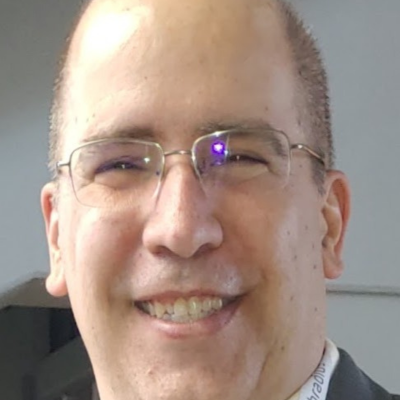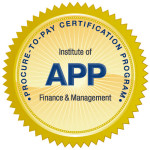
- Membership
- Certification
- Events
- Community
- About
- Help
Just before IOFM’s Spring event, news broke that the President had paused planned tariffs, seemingly good news for finance and supply chain pros. But according to our AR experts, that’s not the full story.
In this timely episode, we unpack what the tariff delay really means for Accounts Receivable professionals. From empty ships returning from overseas to concerns about overstocked inventory, this conversation explores the deeper warning signs hiding behind the headlines. Is the supply chain truly stabilizing, or are we headed for a bigger reckoning?
Even the best economists can’t fully predict what’s next. But for AR pros on the front lines of financial risk, staying alert to these shifts is essential.
Listen in to make sense of the signals—and prepare for what’s coming.

George Uko
George has 20+ years of credit management experience in various positions. He has worked with American Express, Commerce Bank, Bayer Animal Health, Thermo-Fisher and Staples. George’s background includes Fraud Management, Chargebacks, Cash Application, Credit, Collections, New Accounts, Reporting and Forecasting. George enjoys developing high-performing teams and utilizing AI technology.
He is a dedicated and proactive finance professional with a strong background in credit management and Fraud management. An ambitious and hardworking manager who draws upon a solid base of knowledge and experience to develop new strategies and policies. Collaborates with multiple levels of a company to learn and share best practices. With a process improvement orientated mindset, seeks ways to improve productivity and efficiency.

Rich Shively
Rich has 28 years Credit/Collections experience, from small sized companies to multi-billion dollar organizations.
In addition, he has 20 years Managerial experience, 5 years Safety Management experience, and 2 years cost accounting experience.

Jess Scheer
Jess is an award-winning business reporter focusing on financial operations. He has spent more than 25 years creating must-have content for professionals in the finance arena. He serves as Executive Editor of the Institute of Finance & Management (IOFM) and the Cash Management Leadership Institute (CMLI).
Grace Chlosta: Welcome to the IOFM podcast. This is a podcast for accounts payable and accounts receivable professionals who want to stay in the know with current AP and AR trends and ideas. We'll be interviewing professionals in this space on a wide variety of subjects, including automation, artificial intelligence, career growth, compliance, leadership, and much more.
Jess Scheer: Hello. This is Jess Scheer, Executive Editor with IOFM. I'm here with Rich Shively and George Uko at IOFM Spring Conference. There was some breaking news that affected their session on credit, just moments before they went on stage.
00:00:47
The U.S. government announced there would be a 90-day pause on tariffs with China, knocking tariffs down from what was essentially embargo rates, down to about 10%, and reciprocally trying to bring their tariffs down as well. What does that mean now for companies that are buying products from China? How much do we need to still stay on top of it? Is everything fixed now?
Rich Shively: I don't think everything is fixed, obviously. You know, I think it depends on what certain customers did with their inventory position at this point. Did they sell off previous inventory and not get too heavy? If they did and then all of a sudden the economy picks up, now you're going to be looking at increased exposure with those customers. Or did they buy up this inventory and now it's going to take 'em 120, 150 days to sell that off? And when you sell that off, is that going to create cashflow problems?
00:01:45
So I don't want to be doom and gloom on positive news, but I do think that there are some instances in which you'll still want to monitor credit.
Jess Scheer: Absolutely. Things are certainly better than they were, but I think it's -- the onus is still on credit professionals to stay on top of their clients. George?
George Uko: I would like to add one thing to what Rich was saying. My thought, too, is we've got ships coming from overseas. It's three weeks across the ocean. We've got ships coming in with no cargo. We've got ships coming in with maybe 25% of cargo on the ships. So I think we're going to have a bubble here, where it's going to burst a little bit because, before you know it, stores are trying to get their inventory in for the holidays. I know it's not holiday time yet, but they always buy ahead of time.
00:02:32
So my personal take is, what's going to happen is there's going to be a little bit of a bubble, and it's going to burst before -- as far as the holidays. So we may see a little rumble in the market.
Jess Scheer: So I think the real answer is: We need to stay on top of our customers now more so than ever.
George Uko: Correct.
Jess Scheer: Things are not stable.
George Uko: Fair statement.
Jess Scheer: And I think even the best economist would say there's very low clarity in the marketplace. So I think one of the things that I really took away from your session was understanding how the supply chain is going to be affected. So it's not only your customers, but your customers' customers.
And staying on top of any little thing you see. So it's not just the obvious lagging indicators of "This person was paying on time and now they're 90 days late. Uh-oh." "But they used to pay early, get an early-pay discount, and now they're no longer doing that. They're still paying on time, but that's late for them." It's someone who's always cold and now they've got a 99-degree fever. That's not the problem. Let's not send them to the hospital. But if they're usually at 97, that's an indication that there's still something amiss.
00:03:50
Rich Shively: Certainly, I think I've seen it over the course of my career, when you kind of start to see that slide, that becomes a very big concern, and you want to stay on top of it. You want to stay in communication with your customer, and you want to be in communication with your sales organization, as well, to see if they see anything in their customer visits that is alarming.
Jess Scheer: That was something else that the two you mentioned that I thought was really interesting, about using sales as your leading indicator, right? It's not just the metrics, because the metrics often are either in-progress or lagging indicators, at best, but sales could really be your leading indicator of they're not buying as much, or they're not returning phone calls. That might be an indication that they're less likely to be able to afford to pay their bills.
00:04:39
George Uko: On top of which, they know what's going on in the industry, so it may not just be us. It may be as far as our competitors. So we may see this go across not only us but our competitors. So, once again, I'm in the impression we're probably going to be in a little bubble before it gets better.
Jess Scheer: Absolutely. Well, Rich, George, thank you so much. This has been a great conversation here at IOFM Spring, and we look forward to continuing to track this economic event with you.
Rich Shively: Thank you. I appreciate it.
00:05:10
George Uko: Thanks, Jess. Always a pleasure.
Grace Chlosta: Thank you so much for listening to the IOFM podcast. Remember to head on over to the Member Forum to discuss today's episode and provide ideas for our next one. And to stay up to date on IOFM's current events, both in-person and virtually, head on over to IOFM.com.
Continuing Education Credits available:
Receive 1 CEU per hour of listening time towards IOFM programs:

 Receive 1 CEU per hour of listening time towards maintaining any AP and P2P related program through IOFM! These programs are designed to establish standards for the profession and recognize accounts payable and procure-to-pay professionals who, by possessing related work experience and passing a comprehensive exam, have met stringent requirements for mastering the financial operations body of knowledge.
Receive 1 CEU per hour of listening time towards maintaining any AP and P2P related program through IOFM! These programs are designed to establish standards for the profession and recognize accounts payable and procure-to-pay professionals who, by possessing related work experience and passing a comprehensive exam, have met stringent requirements for mastering the financial operations body of knowledge.
Continuing Education Credits available:
Receive 1 CEU per hour of listening time towards IOFM programs:

 Receive 1 CEU per hour of listening time towards maintaining any AP and P2P related program through IOFM! These programs are designed to establish standards for the profession and recognize accounts payable and procure-to-pay professionals who, by possessing related work experience and passing a comprehensive exam, have met stringent requirements for mastering the financial operations body of knowledge.
Receive 1 CEU per hour of listening time towards maintaining any AP and P2P related program through IOFM! These programs are designed to establish standards for the profession and recognize accounts payable and procure-to-pay professionals who, by possessing related work experience and passing a comprehensive exam, have met stringent requirements for mastering the financial operations body of knowledge.
What are you waiting for?
